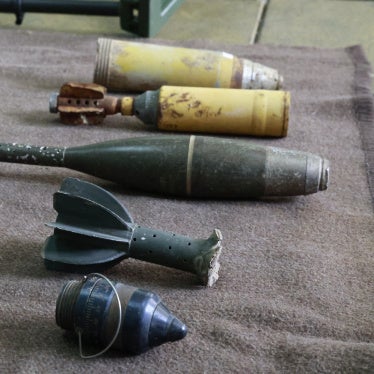After Human Rights Watch issued a press release on Israel’s use of cluster munitions in populated areas of Lebanon and sent a letter to the U.S. National Security Advisor, the U.S. State Department blocked the transfer to Israel of 1,300 artillery rockets containing more than 800,000 cluster bomblets. Less than two weeks later, the State Department also announced it would launch an investigation into whether Israel had inappropriately used U.S.-made cluster munitions in Lebanon.
Most recently, following a U.N. assessment of bombed areas in Lebanon, the United Nation’s top humanitarian official denounced Israel’s increased use of cluster bombs in the last 72 hours of the conflict as “completely immoral.” Human Rights Watch was the first organization to break the story of Israel’s cluster munitions attacks in populated areas—offering evidence and eyewitness accounts of a strike on a Lebanese village that killed one and wounded at least twelve civilians, including seven children. As Human Rights Watch has demonstrated in dozens of reports over the years, cluster munitions pose a serious risk to civilians. In addition to being an indiscriminate weapon, their high failure rate results in large numbers of explosive duds that injure and kill civilians long after an attack is over. We will continue our strong advocacy against the use of indiscriminate weapons like cluster munitions in the Middle East and around the world.








